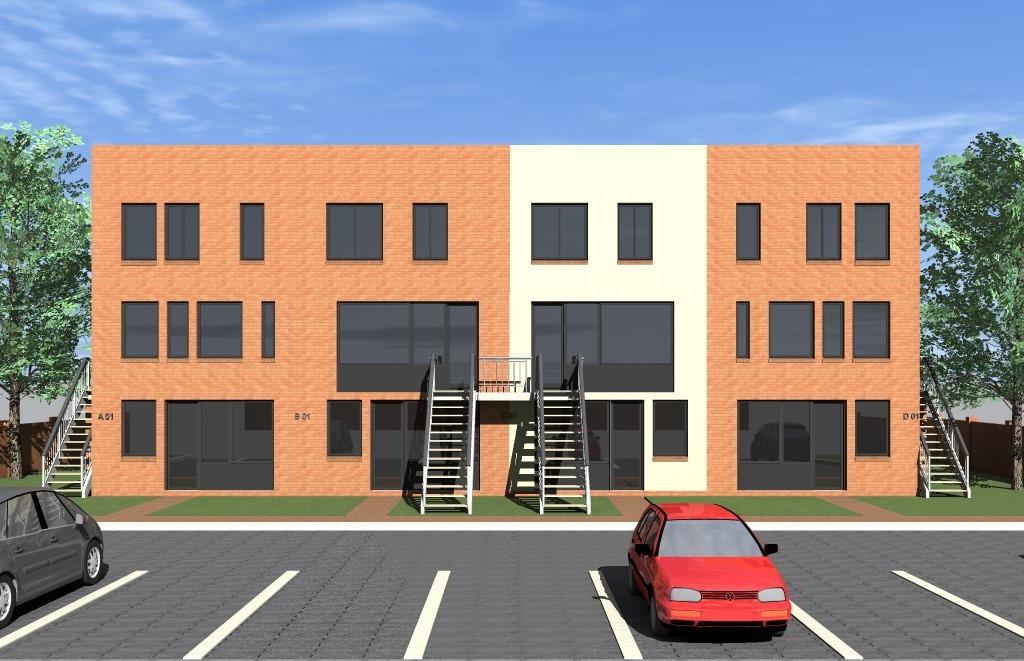About Urban Patch Kigali
Urban Patch Kigali (UPK) advances sustainable development through projects that help build urban communities while promoting environmental, economic, and social improvement. We value the power of small and community-focused projects to have a larger impact to help make cities better. Our work will advance the United Nations’ Sustainable Development Goals’ Goal 11, to make cities and human settlements inclusive, safe, resilient and sustainable. Urban Patch Kigali’s projects will directly address the UN Sustainable Development Goal (SDG) 11 targets in three ways:
- Develop new quality housing in Rwanda that is affordable to a mix of incomes. (SDG 11.1)
- Utilize locally-produced materials to lower the cost of construction and environmental impact while improving quality and providing local jobs (SDG 11.c)
- Create urban, higher-density, developments that include public spaces and other uses to promote improved quality of life and sustainable development. (SDG 11.7)
Background
Like much of the African continent, Rwanda is rapidly urbanizing. This creates a large demand for quality affordable housing. The current housing production to meet the huge need has been provided only at the extremes of burgeoning informal housing for very low-income people and for high-cost housing available only to the top two percent of the population and to foreign investors. As Rwanda’s economy continues to diversify and its working and middle classes grow, there is a large gap and significant demand for moderately-priced housing. Urban Patch Kigali will develop new urban infill housing that can scale to meet this demand through real estate development and, eventually, by producing local construction materials that can reduce cost and environmental impact.
Our objective is to provide housing at more affordable prices and at a mix of incomes while also incorporating nonresidential and public spaces that help promote the vibrant mixed-use and mixed-income neighborhoods needed to support Rwanda’s rapid growth. Based on market research and the availability of mortgage financing, the housing will be targeted to a variety of households, from single young workers to families with children. A portion of the units could also be held as rental housing suitable for the numerous short-term stays by tourists, visitors, and those employed in the international and NGO sectors in Rwanda in order to cross-subsidize the lower-income housing units.
The target market for the housing development will be Rwandans seeking housing in the 30 million to 35 million Rwandan Francs price range for affordable units and 70 million Rwandan Francs and up for market-rate housing for others seeking quality urban housing and neighborhoods. There are three primary competing models to our proposed housing development:
- Large-scale housing developments are being developed in Kigali and other secondary cities in Rwanda at both low-income and market rate price points (these developments target a similar market, but the need and demand far exceeds the projects in the pipeline)
- Low-density low-cost development at the perimeter of the city (suburban sprawl) provides an affordable market for housing that matches many Rwandans’ preferences for a single-family home and an individual plot of land
- Continued informal settlement for low-income people
Business Model
Urban Patch Kigali is a social enterprise that will develop new housing, improve the community and open spaces, and provide low-cost local construction materials and urban development strategies. Modeled after Urban Patch in the United States, Urban Patch Kigali’s developments will occur primarily at a small or incremental scale to connect housing development to community improvement. Income generated from housing is used to develop new projects and provide for the improvement and maintenance of public spaces in the community. Economic value is generated through the improved value of real estate assets and revenues that can be used to sustain and grow the enterprise, and through the use of local material, labor, and management that recirculates in the local economy. Social and environmental value are generated through the responsible development of built and open spaces in the community, and through the use of sustainable locally-produced construction materials. At the completion of the Phase 1 housing development, proceeds from the sale or rental of the housing units will be reinvested to develop the next phase and also used providing for the maintenance of housing and community spaces already completed.
Phase 1 Development
The Phase 1 project will be an 8-unit infill housing development based on Skat Consulting’s successfully completed “Swiss Cubes” affordable housing pilot project in Kimisagara, Kigali. Urban Patch Kigali’s development will be a mixed-income adaptation of the Swiss Cubes model and will provide three of the two-bedroom apartments as affordable housing (priced at 35M RWF), one two-bedroom apartment allocated to the original landowner, and four market-rate three-bedroom duplex apartments. The project, Langston Terrace, is located in the Kigali’s Kibagabaga neighborhood where the mix of market rate and affordable housing is both desirable and economically feasible. The property will include on-site vehicle and bicycle parking and garden terraces for each of the units. The development meets the R2 zoning regulations on an approximately 900 square meter plot with access to a paved road and district sewer. Upon completion of the project, Urban Patch Kigali will donate funds or resources to provide for a to-be-determined community improvement project in the neighborhood.
Langston Terrace Apartments in Kibagabaga
Project Team
Development: Urban Patch Kigali
Project Consulting: Skat Consulting/Swiss Agency for Development & Cooperation
Project Management: GR8C (Great Creations)


